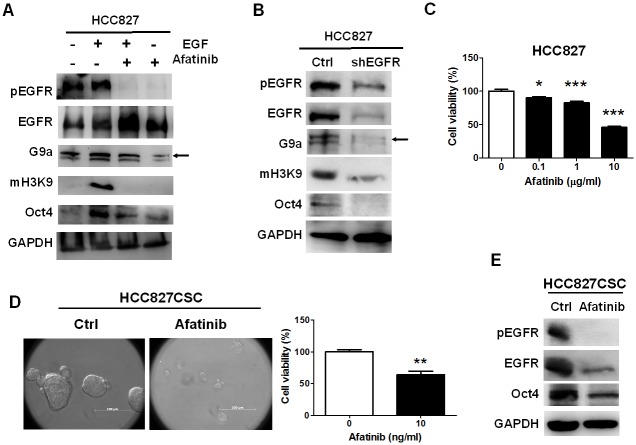Fig 3. EGFR induced the formation of HCC827-derived tumorspheres and G9a expression.
To validate that EGFR directly affects the expression of G9a and Oct4 involved in tumorsphere formation, we inhibited EGFR by using afatinib and genetic knockdown to demonstrate the EGFR-G9a regulatory relationship. (A) Afatinib treatment with or without 20 ng/mL of EGF blocked G9a expression and H3K9 methylation, accompanied by the reduction in Oct4 expression, indicating that EGFR positively regulated G9a in HCC827 cells. (B) EGFR knockdown with lower EGFR autophosphorylation also reduced G9a expression, H3K9 methylation, and Oct4 expression. (C) To validate whether the blockade of EGFR phosphorylation can reduce tumorsphere formation, afatinib was used. First, afatinib was treated with parental HCC827 cells at a dose of more than 1 μg/mL, which led to a reduction in the viability of HCC827 cells. (D) However, afatinib (10 ng/mL) clearly inhibited the formation of HCC827-derived tumorspheres by approximately 50% (n = 3), revealing that afatinib preferably inhibited cancer stemness. (E) Moreover, afatinib reduced EGFR autophosphorylation and expression and Oct4 expression in the HCC827-derived tumorspheres, implying that EGFR phosphorylation self-regulated EGFR expression in HCC827 cells. Scale bar: 100 μm. *p < 0.05. **p < 0.01,***p < 0.001.

